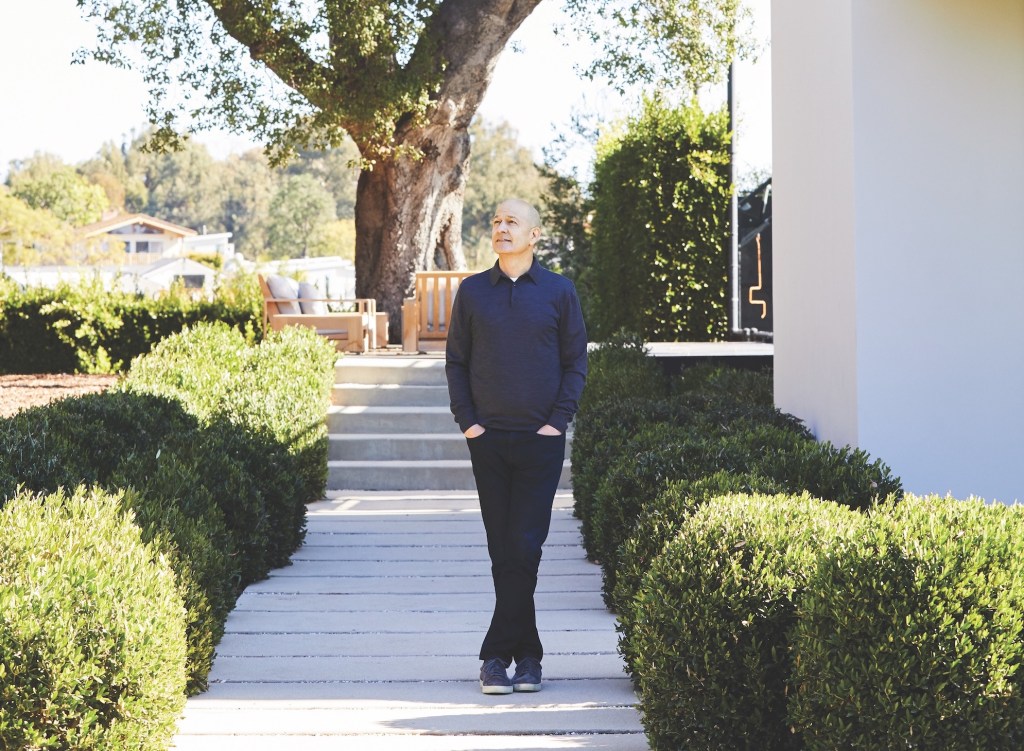For Bobby Turner, if you want to cure a problem in society, you need profitable solutions instead of relying on government and philanthropic resources. A self-described “evolved capitalist and enlightened philanthropist,” he has spent the past 20-plus years proving the need to use business as a force for good and becoming a pioneer in social impact investing.
While social impact investing has been bantered about frequently, he makes clear that it’s not an asset class and it’s not philanthropy.
“At its core, social impact is an investment strategy based on a simple premise—you don’t need to choose between doing good and doing well. You can accomplish both,” says Turner, principal and CEO of Turner Impact Capital.
He says part of the challenge around impact investing is that most investors have been trained that “profits and purpose don’t play nicely in the sandbox.” However, since founding Turner Impact Capital in 2014, he has proved that’s not true.
Based in Santa Monica, California, the firm focuses on sustainable solutions around housing, education, and health care by developing and investing in infrastructure in densely populated, underserved communities. It has a triple bottom line: achieving successful financial results, fostering opportunities for communities, and embracing environmental responsibility.

Courtesy Turner Impact Capital
Bobby Turner and NBA star Chris Paul, who is an investor and ambassador for Turner Impact Capital’s housing funds.
Turner, who raised his first social impact fund in 1998 with basketball legend and businessman Magic Johnson, also is drawing high-profile investors who “want to do good and do well” into his funds. NBA star Chris Paul and actress Eva Longoria are investors and ambassadors for the firm’s housing funds. Tennis legend Andre Agassi is co-managing partner of the firm’s education strategy. Famed hedge fund manager Bill Ackman’s foundation has also invested in four of the firm’s funds.
“These are truly authentic human beings that recognize, with their wealth and fame, they can set an example of paying it forward,” he says.
Working for the Workforce
With the nation plagued by an affordability crisis that’s been exacerbated even further due to the COVID-19 pandemic, the firm has responded to the growing and unmet demand for workforce housing.
“When you have 20.4 million families who are rent burdened and 78% of Americans living paycheck to paycheck, social impact investing has never been more important and never been more rewarding,” Turner says. “You’re not trying to create demand, you’re fulfilling existing demand that’s going unmet.”

Courtesy Turner Impact Capital
Urban Palms in southwest Houston was acquired as part of the Turner Multifamily Impact Fund I.
The firm’s first fund, Turner Multifamily Impact Fund I, invested nearly $700 million to acquire and preserve 7,840 workforce housing units for more than 14,000 residents. The firm is nearly doubling its efforts with its second fund.
In December, it closed on Turner Multifamily Impact Fund II that will invest an additional $1.25 billion in workforce housing communities across the country over the next several years. To date, the second fund has acquired eight communities totaling more than 3,000 units for more than 5,500 residents.
“What we’re focused on is residents earning between 60% and 100% of the area median income. These are essential service providers—like teachers, firefighters, and police officers—who generally don’t earn enough money for ownership or luxury rentals but earn too much for subsidized housing,” Turner says. “Everyone suffers when housing is not proximate to employment, education, and health care.”
Given the cost of land and labor, it’s more difficult than ever to build new construction and charge affordable rents while earning market-rate returns.
In addition, three-quarters of America’s estimated 12 million affordable rental units are unsubsidized, according to Harvard University’s Joint Center for Housing Studies. Plus, an estimated 100,000 multifamily units are being removed from the market each year, according to CBRE.
“Demand is growing, and there’s practically no new supply,” he says. “What drove me into the space, the existing supply of workforce housing is shrinking. When [Class] B and C or subsidized properties come onto the market, they are often bought by opportunistic investors who plan to demolish or complete value-add improvements to increase rents.”
The firm manages multifamily communities in the Atlanta; Austin, Texas; Dallas; Houston; Las Vegas; San Antonio; Seattle; and Washington, D.C., areas. Turner says when looking for workforce housing acquisitions, the firm focuses on the four Ds:
- Density: Markets characterized by the density of the population—at least 250,000;
- Diversity: Communities of color and immigrants;
- Existing Demand: Markets where there is an existing mismatch in housing, education, and health care; and
- Doing Good: “In all my investments, I have to be confident I can drive positive financial returns and positive societal changes in communities where I’m trying to foster hope,” he says. “Social impact investing can drive better risk-adjusted returns than traditional investment strategies.”
Turner adds that by investing in underserved communities, he is driving 10% returns—all while addressing the critical and growing need for affordable workforce housing.

Courtesy Turner Impact Capital
The Turner Multifamily Impact Fund II acquired the 350-unit Portola Del Sol in Las Vegas in 2020.
Resident Satisfaction
To preserve this much-needed housing, Turner says he has figured out how to generate these market-rate returns and not raise rents—and it all comes down to creating pride in rentership.
“The biggest expense in multifamily housing is turnover. It’s not real estate taxes, not tenant improvements or maintenance. When there is no pride in rentership, it leads to transiency,” he says. “If we can create a pride in rentership by enriching a community with essential services and maintaining rents at an affordable level, then tenants will stay longer, which in turn drives down turnover costs and leads to increased profitability.”
The in-house property management team has implemented a wide array of needs-based services designed to enrich the residents’ lives—from children to seniors. This service-enriched programming helps reduce those costly turnovers and vacancies, generate positive social outcomes, increase resident satisfaction, and allow the communities to stay affordable.
For Rachel Mavrothalasitis, director of impact at Turner Impact Capital, the services and programming have been a source of pride personally and for the residents. “We have seen that over 40% of our current residents are participating in the programs, and over 80% of prospective residents are citing these programs as a reason to move to one of our properties. Enrichment programming is attracting people as well as motivating people to stay where they are living.”
Services are tailored to residents’ needs and desires at each community after informal feedback sessions, but some of the most popular include nutrition and physical fitness classes for all ages; after-school tutoring and school support; and seniors programming.
The firm also taps resident professionals, including first responders, teachers, health care professionals, mental health workers, and social workers, to help engage and deliver services and programming to the residents in exchange for deeply subsidized rents.
Since 2015, Turner Impact Capital has delivered more than 90,000 program participant hours and more than 6,500 events with more than 120 program professionals and 140-plus network organizations. In addition, it rolled out a program for residents to build their credit scores and gain upward mobility by paying their rent on time. The firm has achieved about 94% for overall resident satisfaction and 98% for program satisfaction.
“The fact that we have driven tenant satisfaction to such high levels—an overall 94% satisfaction rate—really epitomizes the kind of lift the residents are receiving by a landlord reaching out and delivering services in a bespoke fashion,” Turner says.
Pandemic Pressure
The COVID-19 pandemic has put a spotlight on just how vital workforce housing is across the nation. While it’s too soon to tell the magnitude of disruption, Turner says it is going to highlight just how fragile underserved communities are, and it’s going to exacerbate the government’s ability to create lasting solutions.
“Because the properties we target are in moderately dense communities, we expect to see increased demand. What COVID has done is demonstrate the need for affordable housing and the preservation of affordable housing,” he says. “It has proven that investments in impact outperform more traditional investments because the underlying demand is less sensitive to things like pandemics. Demand for workforce housing is not impacted by economic and other crises. It is only growing.”
With an average rent of $924 in the first fund, Turner says overall collections have been phenomenal despite the challenges from the pandemic and economic downturn. “We reduce the need for evictions by charging an affordable rent. If it’s affordable, people can pay the rent,” he says. “We also encourage residents to be proactive about reaching out to us when they are having hardships. For those residents having difficulty, we connect them with resources for direct subsidies and help them navigate through unemployment and stimulus benefits. Just because those programs exist doesn’t mean the residents have visibility to them.”
So far, Turner Impact Capital has connected its residents with more than $1 million in rental assistance as well as other critical resources.
For Mavrothalasitis, the recent efforts during the pandemic sum up the impact that Turner Impact Capital is having on residents’ lives on a daily basis.
“Knowing that I can contribute to our mission to deliver social impact at scale means a lot, and gives me hope that we can get ahead of negative and tough outcomes that I have seen in crisis environments where I have worked in the past,” she says. “My goal is to keep folks happier, healthier, and safer for the long run.”
